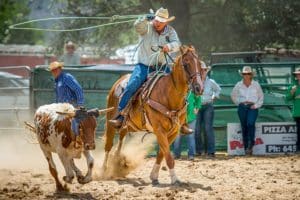Don’t Administer ‘New,’ ‘Old’ Equine Influenza Vaccines in Quick Succession

Equine influenza is a tricky virus. It mutates easily because of its “error-prone” RNA that tends to “switch” certain proteins for others when it duplicates.
As a result, vaccines against equine influenza are equally tricky. As mutated virus forms work around current vaccinations and cause epidemics, researchers race to create updated vaccines. As if that’s not complicated enough, now there’s a new challenge: managing the “cocktail” of available influenza vaccines in the medicine cabinet. Japanese researchers have determined that the right mix at the right timing affords immunity; the wrong mix, however, does not.
“The shelf lives of equine influenza vaccines in many countries, including Japan, are usually two or three years, and their qualities as vaccines don’t really change before the expiration dates if properly stored,” said Takashi Yamanaka, PhD, of the Japan Racing Association Equine Research Institute, in Shimotsuke, Tochigi. “But veterinarians need pay attention so as to not mingle old and new vaccines when using them for primary immunization, even if neither of them has expired
Create a free account with TheHorse.com to view this content.
TheHorse.com is home to thousands of free articles about horse health care. In order to access some of our exclusive free content, you must be signed into TheHorse.com.
Start your free account today!
Already have an account?
and continue reading.

Related Articles
Stay on top of the most recent Horse Health news with

















